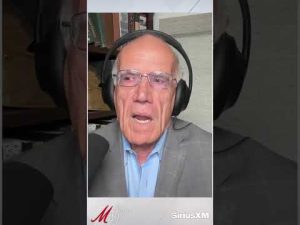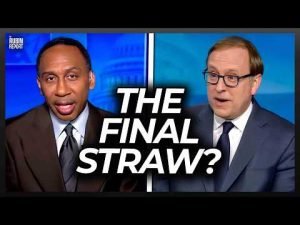As the Justice Department dives deeper into the web of allegations surrounding the Obama administration’s involvement in the infamous Russia investigation, the question on everyone’s mind is whether anyone will be held accountable for any potential wrongdoings. Director of National Intelligence, Tulsi Gabbard, has made strong claims, stating that what she sees as a treasonous conspiracy could lead to serious legal repercussions. Just imagine what it must feel like to have the spotlight shining on such a high-stakes issue—everyone is watching, and the stakes couldn’t be higher.
The legal landscape surrounding these allegations is anything but simple. Many wonder if former President Obama could be brought to justice if the DOJ finds evidence of wrongdoing. However, it appears that the consensus among legal experts is that Obama enjoys a protective cloak of presidential immunity when it comes to his official acts. That’s right; this man may have built a proverbial moat around himself, keeping him safe from the prying eyes of prosecutors. Even if Gabbard’s claims hold water, they may not even scratch the surface of legal repercussions for Obama himself.
This protective immunity is designed to ensure that every decision a president makes, even if politically charged, cannot be scrutinized by the courts. Why? Because it was put in place to prevent any future leaders from facing frivolous lawsuits based on their policy decisions. If one were to suggest that Obama acted with malicious intent to undermine a presidential election, this would still be off-limits for any kind of legal inquiry. According to experts, this structure is intentionally narrow, carefully crafted to distinguish between real treason—with its historical echoes of British kings exploiting the term—and routine political maneuvering.
Now, what about the other figures involved, like former FBI Director James Comey, former National Security Advisor James Clapper, and even Hillary Clinton? It turns out these folks don’t share Obama’s extensive blanket of immunity. Instead, they would operate under a different set of rules. However, there is a ticking clock involved; any alleged wrongdoing by them must have occurred within the last five years for it to be prosecutable. If it happened longer ago, consider it water under the bridge. If they had testified under oath and denied that any unlawful activity occurred, they could face perjury charges, but proving they lied would still hinge on showing that they committed a crime in the first place—talk about a legal catch-22!
This ongoing saga feels like a television drama, doesn’t it? With accusations flying and legal battles looming, it keeps the pundits buzzing. The recent discussions have yet to gain significant traction outside our borders, as international observations from various European countries reveal that their focus might be elsewhere—like on the constant buzz surrounding Jeffrey Epstein. With all of this at stake, American citizens find themselves in a waiting game, hoping for clarity and justice in a matter that hits close to home. The intersection of politics and law continues to provide drama worthy of a soap opera, and who knows what twists and turns lie ahead?







